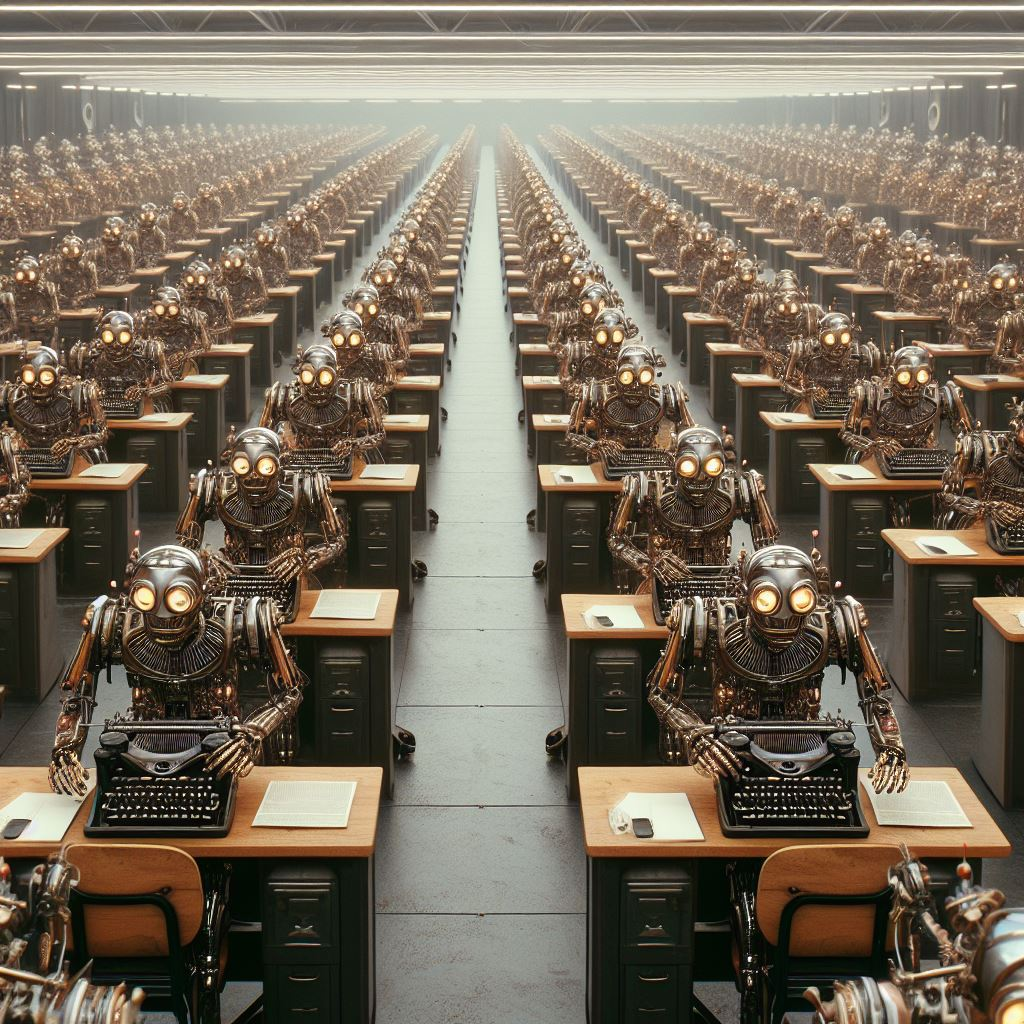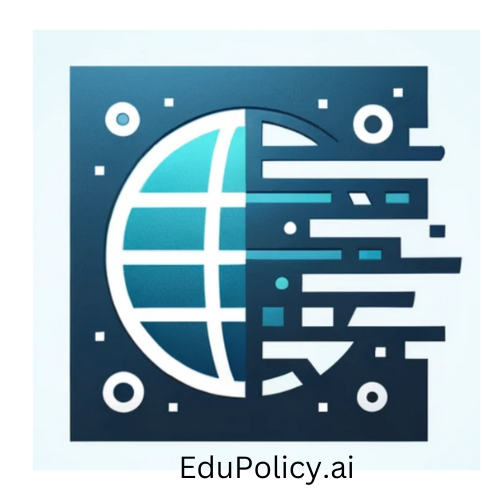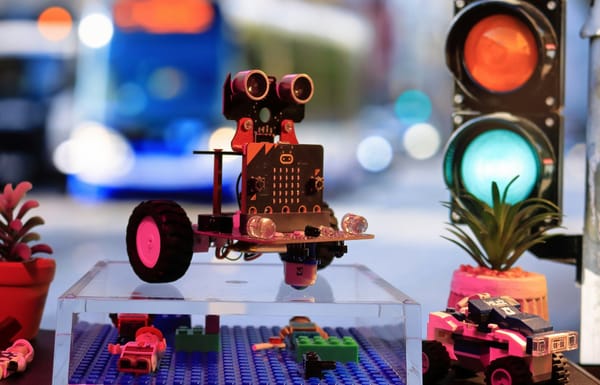AI – The Death of Originality – Genuine concern or elitist snobbery?

Feb 24, 2024
Guest Author--John Dolman
In my previous post I engaged with the valid concerns about AI being used as a shortcut to get to a creative and academic endpoint without going through the rigor of the learning process usually attendant on these activities.
Chomsky’s view of AI as high-tech plagiarism is certainly one potential (and, let’s face it, actual) misuse of the technology, but is there something more going on behind this debate?
A lot of the argument is framed in terms of AI as a substitute for actual learning or skill development and that can be true to an extent. The ability of LLMs to produce generically accurate texts is well recognised, but their ability to hallucinate is also well recognised too and even the LLMs that are internet capable have serious issues in terms of their ability to differentiate sources and their relative quality – I had quite the time of it with Gemini trying to write the previous article and using it as a research tool to find specific quotations; when it was good it was fine, but when it was bad… Well, let’s just say I did a lot of cross referencing. If I hadn’t already been through a fairly extensive education and I didn’t understand what I was dealing with then my content would have been filled with misattributions and inaccuracies.
However, are we going to suggest that human writers, creators and scholars are not capable of inaccurate or nonsensical outputs, always check their sources accurately and always produce the highest quality material?
Are we also going to suggest that we just let our student produce everything through AIs, unsupervised and unprepared?
Unfortunately, if we don’t engage with the emergent reality this is exactly what will happen.
It’s exactly what is happening.
If we don’t engage with the technology, we will find ourselves caught on the back foot – it is not a fad, not a flash in the pan – it is an iteration of the technological advances we have seen coming for the past two decades and more. Education has a habit of being flat footed when it comes to social and technological shifts. Here we are two decades on since the launch of Facebook and we’re only just getting to grips with social media and online safety (and even then, not always doing a great job of it).
However, there is also something else going on here too. There is a vested interest and inherent cultural bias on the part of the intellectual, social and cultural elites. They had to go through a process of learning the hard way, they had to memorize by rote passages of Shakespeare, they had to handwrite their essays. The ability to parrot latin phrases is clearly a mark of learning and wisdom and you can only be learned and wise if you follow the same academic path or creative apprenticeship.
Besides, are we really suggesting that no author has ever ‘borrowed’ an idea from something they read somewhere? Are we suggesting that all true creative work just popped fully formed into the minds of the artist or academic in questions?
Isn’t this how creativity starts – aping the styles of others and drawing upon this to create your own works?
Who gets to be the Gatekeeper?

There is definitely an intellectual snobbery around the process of learning and the ownership of knowledge. The gatekeepers of what is ‘good’ will not allow mass produced learning via AI to supplant their hard-won prowess, will not entertain the idea that these technologies could give voices to those who previously would not have had this ability to express themselves. The democratizing power of technology is only good if it democratizes in the right way for the right people.
There even appear to be overtones of Frederick Winslow Taylor in some of the discourse. Winslow Taylor’s system of ‘scientific management’ focused on control. It removed decision-making power from workers, treating them as cogs within a machine designed by management, who held the ‘true’ knowledge of the task at hand. Imagine if people could own knowledge for themselves instead of having it portioned out – the intellectual rebellions that would bring about, we can’t have that!
Just as Taylor advocated for knowledge and skill to reside in management and the flow of instruction be handed down to the worker, our education system classifies what is good to be given to students and when.
As educationalists we have long recognised the need to adapt to the needs of our learners – to make learning context relevant. So why then am I teaching a syllabus that if anything, has gone backwards in time? Why are we looking skeptically at these emergent technologies as mere cheating tools for the intellectually lazy?
In all fairness most of us are not and the argument is much more nuanced than this, but the idea of gatekeeping knowledge and learning is still something that is deeply embedded in our systems – what is ‘good’ knowledge and who gets to decide this?
Our education systems exclude so many of our students as the material we deliver just does not speak to them, is not relevant and they have no locus of control over what and how they learn. The systems in which they find themselves prioritize learning outcomes in narrow domains over learning processes that can be transferred into real world contexts.
Now AI is not the panacea that the most ardent supporters of the technology suggest it is. It doesn’t offer anything that we can’t already do, it just offers it more quickly and sometimes more accurately (don’t get me started on Gemini again though…). Essentially it can’t make bad teaching better, but it can make good teaching easier and provide opportunities for educators to do what they know is most effective for their students. It can provide access to skills that are beyond a learner’s current capabilities and engage students interactively in ways that were previously impossible.
AI technologies offer unique opportunities to engage and personalize the learning experience, but they won’t and can’t replace the basic foundations of good teaching and learning. Students still need literacy, numeracy, meta-cognitive and critical thinking skills, but with these and a good foundational knowledge of science, humanities and the arts then perhaps we can make some transformational changes to the way we do things.
But here’s the rub – this technology is here, freely available to anyone with an internet connection and it’s only getting more powerful. Corporations are already using it in a myriad of ways and have been for a while now. Deepfakes and AI generated media will perpetuate, and our students will have to deal with this unguided. So, will we continue to decry it as a mediocrity machine or a souped-up predictive text generator for the illiterate, the lazy and the distracted?
The AI genie is out of the bottle and it’s knocking on the ivory towers of the intellectual elites – the question is, will we open the door and let it enter or will it smash its way in, doing who knows how much damage on the way?
--John Dolman
#EdTech #AIinEDU #AIintheclassroom #AIinschools #AIforteachers #AIineducation





